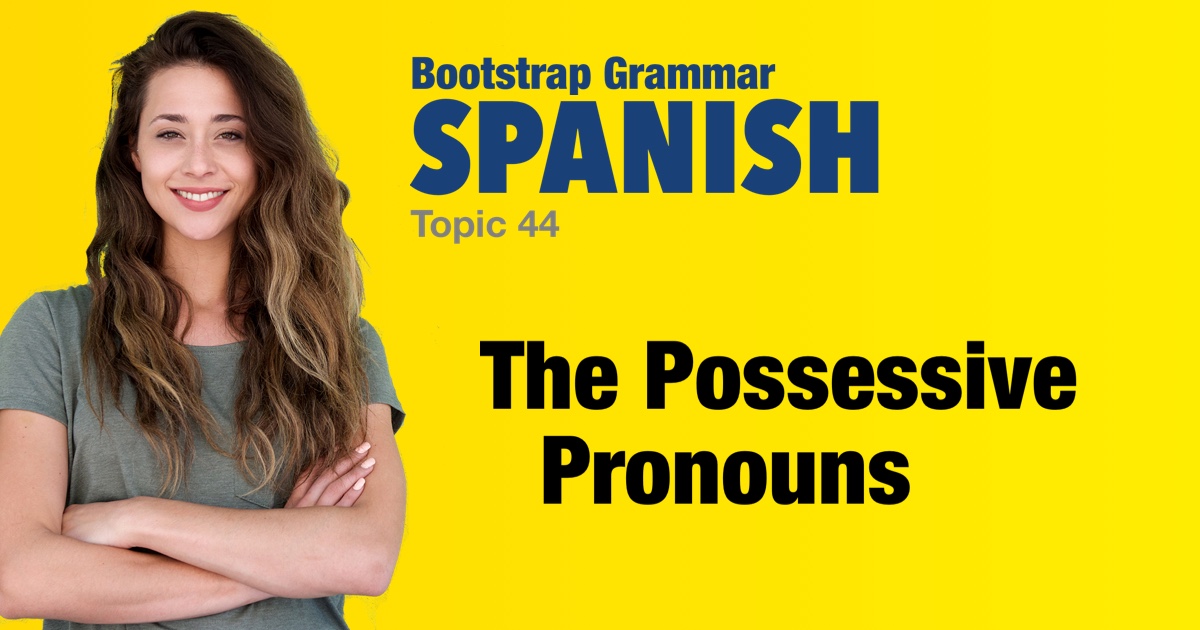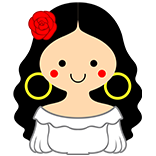Spanish grammar - The Possessive Pronouns |
|||
|
|||
Possessive pronouns ('mine', 'yours', 'his', 'hers' etc.) are used in place of nouns to indicate to whom or to what those nouns belong. The Spanish possessive pronouns depend on the gender and number of the noun it replaces. • yo ⇒ mío (sing.masc), mía (sing.fem), míos (pl.masc) & mías (pl.fem) • tú ⇒ tuyo (sing.masc), tuya (sing.fem), tuyos (pl.masc) & tuyas (pl.fem) • él, ella, usted ⇒ suyo (sing.masc), suya (sing.fem), suyos (pl.masc) & suyas (pl.fem) • nosotros, nosotras ⇒ nuestro (sing.masc), nuestra (sing.fem), nuestros (pl.masc) & nuestras (pl.fem) • vosotros, vosotras ⇒ vuestro (sing.masc), vuestra (sing.fem), vuestros (pl.masc) & vuestras (pl.fem) • ellos, ellas, ustedes ⇒ suyo (sing.masc), suya (sing.fem), suyos (pl.masc) & suyas (pl.fem) Because suyo etc. can be ambiguous (it can mean 'his', 'hers', 'yours' (formal), and 'theirs'), context is important, or it can be clarified with the couplets 'de él', 'de ella', 'de usted', 'de ellos', or 'de ellas' though this can sound old-fashioned. |
| Examples: | |
|
Este libro que está en la mesa es mío.
This book on the table is mine. |
|
|
La casa grande que está en el campo es mía.
The big house in the countryside is mine.
|
|
|
Las mochilas que están en el coche son mías.
The backpacks in the car are mine. |
|
|
¿Es tuyo este coche rojo que está afuera?
Is this red car outside yours? |
|
|
Estos amigos que vienen a la reunión son tuyos.
These friends coming to the meeting are yours. |
|
|
El libro que está en la estantería es suyo.
The book on the shelf is yours (formal). |
|
|
La casa que está cerca de la playa es suya.
The house near the beach is his. |
|
|
Los perros que están en el parque son suyos.
The dogs in the park are hers. |
|
|
El coche que está en el garaje es nuestro.
The car in the garage is ours.
|
|
|
Las llaves que están en la mesa son nuestras.
The keys on the table are ours. |
|
|
¿Es vuestro este coche azul?
Is this blue car yours (informal plural)? |
|
|
Las llaves que están en la puerta son vuestras.
The keys in the door are yours (informal plural). |
|
|
La casa que está en la colina es suya de ellas.
The house on the hill is theirs.
|
|
|
Los perros que están en la calle son suyos de ellos.
The dogs on the street are theirs.
|
|
|
Las mochilas que están en el aula son suyas de ellas.
The backpacks in the classroom are theirs.
|
|
|
El coche que está en la esquina es suyo de usted.
The car on the corner is yours (formal).
|
|
|
Los amigos que están en la fiesta son suyos de usted.
The friends at the party are yours (formal). |
|
|
Las llaves que están en su bolsillo son suyas de usted.
The keys in your pocket are yours (formal).
|
|
|
Esta es mi llave. ¿Dónde está la tuya?
This is my key. Where is yours (familiar)? |
|
|
La casa que está en la foto es suya de él.
The house in the picture is his.
|
|
 |
|



